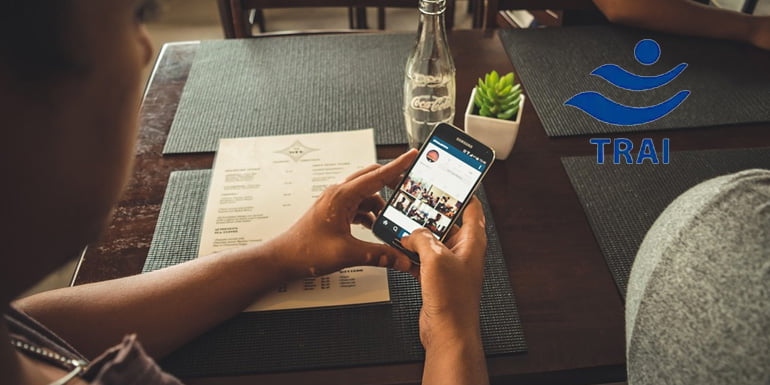The telecom watchdog of India, Telecom Regulatory Authority of India (TRAI) has released its long overdue recommendations on Net Neutrality in India. Unlike in other countries who have started to restrict internet based on content served, in India, the regulator is giving full support on equal and complete access to the internet to everyone, irrespective of the type of content served.
Other important recommendations from the regulator –
- The licensing terms should be amplified to provide explicit restrictions on any sort of discrimination in Internet access based on the content being accessed, the protocol being used or the user equipment being deployed.
- Content as per regulator would include all content, applications, services and any other data, including its end-point information that can be accessed or transmitted over the internet.
- The “discriminatory treatment” in the context of treatment of content would include any form of discrimination, restriction or interference in the treatment of content, including practices like blocking, degrading, slowing down or granting preferential speeds or treatment to any content.
- ISP and other service providers are to be restricted from entering into any arrangement, agreement or contract with any person, natural or legal, that has the effect of discriminatory treatment based on content, sender or receiver, protocols or user equipment. It was one TRAI restricted when Facebook Free basics entered in India with the help of RCom.
- These discriminations apply specifically to ‘Internet Access Services,’ which are generally available to the public.

However, TRAI has exempted Specialised services from the principles of discriminatory treatment. Specialised services are those services other than Internet Access Services, which are optimised for specific content, protocols or user equipment, and where the optimisation is necessary in order to meet specific quality of service requirements.
- DoT may identify specialised services. Service providers can offer specialised services only if they are not usable (or offered) as a replacement for Internet Access Services.
- Internet of Things (IoT), as a class of services, are not excluded from the scope of the restrictions on non-discriminatory treatment. However, critical IoT services, which may be identified by DoT, and which satisfy the definition of specialised services, would be automatically excluded.
- Content Delivery Networks (CDNs), which enable a Telecom Service Provider (TSP) to deliver content within its network without going through the public Internet, are exempted from the scope of any restrictions on non-discriminatory treatment.
ISP providers may take reasonable measurements for traffic management, provided the same are proportionate, transient, and transparent. They may also take reasonable measures to preserve integrity and security of network, for provision of Emergency Services, implementation of an order of the court or direction of the Government, or in pursuance of an international treaty.
For monitoring and investigation of violations, a collaborative mechanism has been recommended to be established in the form of a multi-stakeholder body comprising members representing different categories of TSPs and ISPs, large and small content providers, representatives from research and academia, civil society organisations and consumer representatives.


